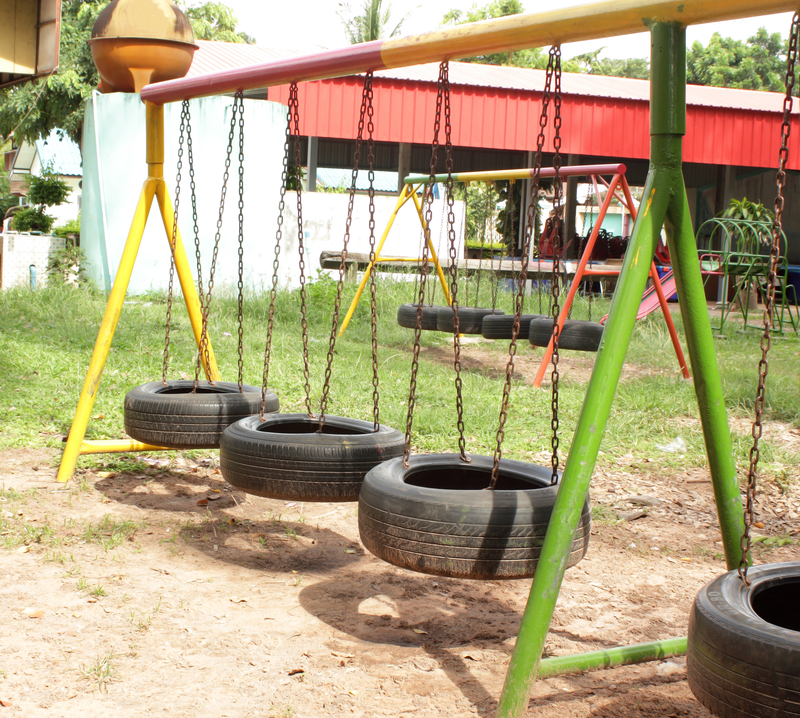25 Smart Strategies to Save Money on Bulky Waste Item Disposal
Dealing with large, unwanted items such as broken furniture, old mattresses, or outdated appliances can be an expensive and stressful experience. Bulky waste item disposal often involves hefty fees, strict guidelines, and some logistical headaches. However, with careful planning and some savvy tips, you can significantly cut your costs and even find some unexpected benefits in the process. Whether you're clearing out your home, downsizing, or helping a loved one, these 25 smart strategies will help you save money and dispose of large waste items efficiently and responsibly.
Understanding Bulk Waste Disposal
Before diving into the money-saving strategies, it's important to understand what qualifies as bulky waste and why disposal can be costly. Bulky waste typically refers to items too large or heavy to be accepted in regular trash pickup--think sofas, mattresses, appliances, carpets, and garden debris. Because these items often require special handling, recycling, or landfill space, costs can add up quickly.
Why Is Bulky Waste Disposal Expensive?
- Specialized equipment is required to collect and transport heavy items.
- Certain items, like mattresses or electronics, may need to be disassembled or have hazardous components handled safely.
- Landfill space is limited and increasingly expensive for municipalities.
- There are often environmental and regulatory considerations for disposing of large items responsibly.

25 Smart Strategies to Save Money on Bulky Waste Item Disposal
1. Check for Free Municipal Collection Days
Many towns and cities offer annual or seasonal free bulky waste pickup. Research your local government's website or contact the public works department to find out when these special days are available. Planning your cleanup around these events can save you the entire disposal fee.
2. Coordinate with Your Neighbors
Pooling resources with neighbors who also have big items to dispose of can help you split the cost of a private bulk waste collection service. Companies often offer better rates for larger loads.
3. Donate Usable Items
If your bulky items are still in usable condition, consider donating them to local charities, thrift stores, or shelters. Organizations such as Goodwill, Habitat for Humanity ReStores, and Salvation Army often provide free pickup services, saving you money and benefiting your community.
4. Sell Items Online
Platforms like Facebook Marketplace, Craigslist, OfferUp, or local community groups can help you sell or give away unwanted furniture and appliances. Buyers frequently handle pick-up themselves, saving you the hassle and expense.
5. Repurpose or Upcycle
With a bit of creativity, many bulky waste items--such as wooden furniture, pallets, or beds--can be upcycled into shelves, accent pieces, or outdoor furniture. Not only does this save money on disposal, but it can add unique touches to your home decor.
6. Contact Local Scrap Metal Dealers
Appliances and metal items are often accepted by scrap yards or metal recyclers. Some dealers will even pick up large metal waste items for free or offer a cash incentive for items like old washing machines, refrigerators, and stoves.
7. Utilize Store Take-Back Programs
When purchasing a new appliance or large furniture item, many retailers offer take-back services for your old item--sometimes for free, sometimes for a nominal fee. Always inquire during your purchase.
8. Check Manufacturer Recycling Programs
Certain manufacturers run responsible recycling programs for their products, especially for mattresses and electronics. Take advantage of these programs to ensure safe disposal and potentially save on fees.
9. Break Down Items Yourself
Disassembling bulky items into smaller parts can allow you to utilize regular trash pickup, recycling bins, or save on transport costs. For example, breaking down a couch might allow you to take pieces in your own vehicle to a disposal site.
10. Use Municipal Drop-off Centers
Many municipalities operate waste transfer stations or drop-off centers where residents can dispose of bulky waste for a much lower fee than private collection or sometimes for free.
11. Compare Local Junk Removal Services
Prices for bulky item removal can vary widely between local providers. Always get multiple quotes and negotiate where possible. Some smaller companies may offer discounts for first-time or repeat customers.
12. Look for Pay-Per-Item Rates
Some junk haulers or disposal services charge less if you only have one or two items, compared to a full truckload price. This can be more cost-effective for small quantities of bulky waste.
13. Host a "Free Stuff" Curb Day
Place a sign and unwanted bulky waste items at your curb with "FREE" - many towns allow this for short periods. Neighbors or passersby may take your items, which costs you nothing for disposal.
14. Enlist the Help of Friends with Trucks
Avoid rental and hauling fees by asking friends or family with a truck to help transport items to a landfill, recycling facility, or donation center. A pizza or a favor in return is often cheaper than professional services!
15. Research Local Non-Profit or Church Pick-Ups
Some churches or community organizations offer charity pick-up days for neighborhood cleanups. Participating in these events can get your items removed at no cost.
16. Advertise on Local Freecycle Groups
Freecycle online groups connect people giving away items to those who need them. Post your bulky items, and often someone will claim and pick them up, saving you the disposal fees.
17. Recycle What You Can
Certain components of bulky waste--such as metal frames, wooden parts, or electronics--may be recyclable. Separate these before disposal to save on fees or even earn a small amount from recycling.
18. Schedule Disposal During Community Cleanups
Many towns hold community cleanup days where they waive or reduce bulk item disposal fees. These are ideal times to get rid of multiple large items at a discount or for free.
19. Avoid Hidden Fees
When using any removal service, ask for a clear quote that lists all fees upfront. Some providers add charges for stairs, long distances, or "extra heavy" items.
20. Bundle with Other Services
If you're hiring movers or cleaners, ask if they can add bulky waste disposal to their services--often at a reduced rate compared to hiring a separate junk removal company.
21. Take Advantage of Tax Deductions
Donating large items to a registered charity can provide you with a tax deduction for the value of your donation. Keep receipts and consult a tax professional.
22. Utilize Construction or Renovation Waste Services
If disposing of items during a home project, use the dumpster or collection arranged for construction debris, as adding a few bulky items is usually much cheaper than arranging separate pickup.
23. Negotiate Disposal When Moving
If moving, negotiate with your moving company to include unwanted bulky item disposal as part of the service, especially if you're paying a flat rate or minimum load fee.
24. Reduce Bulky Waste Through Prevention
Before purchasing large items, consider their long-term use, durability, and ease of future disposal. Opt for items with recyclable components, modular parts, or trade-in options to prevent high costs later.
25. Research Disposal Vouchers or Subsidies
Some local governments or programs offer disposal vouchers or subsidies for households dealing with hardship or major cleanouts. Contact your local council or environmental agency to learn more.

Environmental and Financial Benefits of Smart Bulky Waste Disposal
Implementing these cost-saving tips for bulky waste item disposal not only benefits your wallet but also helps protect the environment. Reducing landfill waste, minimizing illegal dumping, and promoting reuse and recycling all contribute to a cleaner community and a healthier planet.
- Saving Money: Avoiding landfill fees, truck rentals, and full-service removal costs can add up to substantial savings.
- Supporting the Community: Donating or giving away still-usable items helps those in need and keeps useful products in circulation.
- Going Green: Recycling or repurposing items cuts down on environmental impact and landfill pressure.
Bulky Item Disposal FAQ
- What items are considered bulky waste? Items too large for regular trash pickup, including furniture, mattresses, appliances, carpeting, and large garden waste.
- Can I recycle all bulky waste? Not all bulky items are recyclable, but many parts or materials within them, like metal or wood, can often be separated and recycled.
- Are there legal restrictions? Some areas have strict rules for curbside disposal or dumping, so always check local regulations before leaving items outside.
- Is it safe to use free disposal programs? Yes, but always use official channels to avoid illegal dumping or fines.
Conclusion: Save Money and Dispose Responsibly
With these 25 smart strategies for bulky waste disposal, you're well-equipped to manage even the biggest decluttering projects while keeping costs at a minimum. Whether you choose to donate, sell, recycle, or creatively repurpose your items, you're making a positive impact both on your budget and the environment. Take a proactive approach, plan ahead, and watch as your space--and your wallet--benefit from smarter, cheaper disposal choices. For the best results, research your local options and be sure to take advantage of free community resources whenever possible.
Start decluttering today and save money on bulky waste item disposal--for a cleaner home and a greener planet!